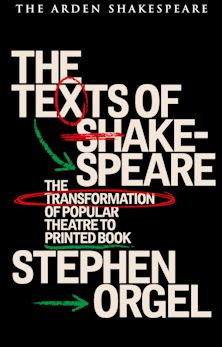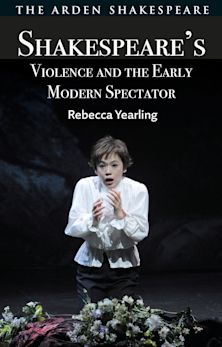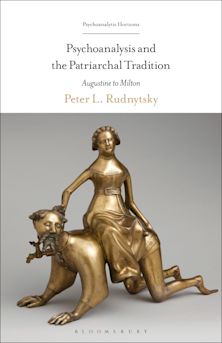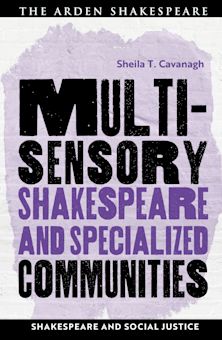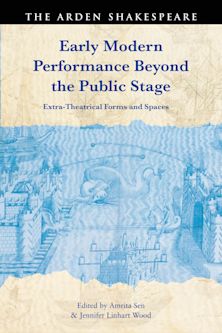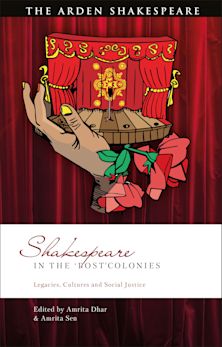Shakespeare's Demonology
A Dictionary
Shakespeare's Demonology
A Dictionary
Description
Is postdramatic theatre political and if so how? How does it relate to Brecht's ideas of political theatre, for example? How can we account for the relationship between aesthetics and politics in new forms of theatre, playwriting, and performance?
The chapters in this book discuss crucial aspects of the issues raised by the postdramatic turn in theatre in the late twentieth and early twenty-first century: the status of the audience and modes of spectatorship in postdramatic theatre; the political claims of postdramatic theatre; postdramatic theatre's ongoing relationship with the dramatic tradition; its dialectical qualities, or its eschewing of the dialectic; questions of representation and the real in theatre; the role of bodies, perception, appearance and theatricality in postdramatic theatre; as well as subjectivity and agency in postdramatic theatre, dance and performance.
Offering analyses of a wide range of international performance examples, scholars in this volume engage with Hans-Thies Lehmann's theoretical positions both affirmatively and critically, relating them to other approaches by thinkers ranging from early theorists such as Brecht, Adorno and Benjamin, to contemporary thinkers such as Fischer-Lichte, Rancière and others
Table of Contents
Introduction: Postdramatic Theatre and the Political by Jerome Carroll, Karen Jürs-Munby and Steve Giles
Chapter 1: Towards a Paradoxically Parallaxical Postdramatic Politics? By Brandon Woolf (University of California, USA)
Chapter 2: Performing Dialectics in an Age of Uncertainty, or: Why Post-Brechtian Does not Mean Postdramatic by David Barnett (University of Sussex, UK)
Chapter 3: Political Fictions and Fictionalisations: History as Material for Postdramatic Theatre by Mateusz Borowski and Malgorzata Sugiera (Jagiellonian University, Poland)
Chapter 4: A Future for Tragedy? Remarks on the Political and the Postdramatic by Hans-Thies Lehmann (University of Kent, UK)
Chapter 5: Spectres of Subjectivity: On the Fetish of Identity in (Post-)Postdramatic Choreography by Peter M. Boenisch (University of Kent, UK)
Chapter 6: Christoph Schlingensief's Rocky Dutschke, '68: A Reassessment of Activism in Theatre by Antje Dietze ( University of Leipzig, Germany)
Chapter 7: Postdramatic Reality Theatre and Productive Insecurity: Destabilising Encounters with the Unfamiliar in Theatre from Sydney and Berlin by Ulrike Garde and Meg Mumford (Macquarie University, Australia, and University of New South Wales, Australia)
Chapter 8: Postdramatic Labour in The Builders Association's Alladeen by Shannon Jackson (Berkeley, University of California, USA)
Chapter 9: Acting, Disabled: Back to Back Theatre and the Politics of Appearance by Theron Schmidt (King's College London, UK)
Chapter 10: Parasitic Politics: Elfriede Jelinek's 'Secondary Dramas' Abraumhalde and FaustIn and Out by Karen Jürs-Munby (Lancaster University, UK)
Chapter 11: Phenomenology and the Postdramatic: A Case Study of Three plays by Ewald Palmetshofer by Jerome Carroll (University of Nottingham, UK)
Chapter 12: Performing the Collective. Heiner Müller's 'Alone with these Bodies' ('Allein mit diesen Leibern') as a Piece for Postdramatic Theatre by Michael Wood (University of Edinburgh, UK)
Notes
Notes on Contributors
Index
Product details

| Published | 27 Feb 2014 |
|---|---|
| Format | Ebook (PDF) |
| Edition | 1st |
| Extent | 248 |
| ISBN | 9781780936185 |
| Imprint | The Arden Shakespeare |
| Illustrations | 5 halftones |
| Series | Arden Shakespeare Dictionaries |
| Publisher | Bloomsbury Publishing |
Reviews

ONLINE RESOURCES
Bloomsbury Collections
This book is available on Bloomsbury Collections where your library has access.














